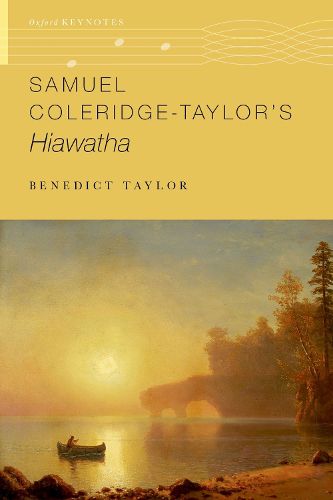Readings Newsletter
Become a Readings Member to make your shopping experience even easier.
Sign in or sign up for free!
You’re not far away from qualifying for FREE standard shipping within Australia
You’ve qualified for FREE standard shipping within Australia
The cart is loading…






The Hiawatha trilogy of cantatas (1898--1900), based on Henry Wadsworth Longfellow's poem The Song of Hiawatha, were some of the most popular and widely performed pieces of music in the opening decade of the twentieth century. As a result, their young African British composer, Samuel Coleridge-Taylor (1875--1912), became widely celebrated in the UK and North America. In this volume, Benedict Taylor examines the musical and political significance of Coleridge-Taylor through the reception history of his Hiawatha trilogy. Coleridge-Taylor's music and efforts on behalf of the African diaspora were made largely from within the white frame in which he grew up and highlight the difficulties of transcultural or interracial mediation at this point in history. Longfellow's source text already constitutes a contested narrative of ethnic identity and appropriation through its epic framing of Native American history from a white, settler perspective. And further complicating the story, the success of Hiawatha made Coleridge-Taylor a focal point for African American attempts at cultural recognition. Not only does Hiawatha afford the chance to explore the music of one of the most important composers of colour in the Western classical music tradition, but the work and its reception forms a prism with which to analyse questions of canonicity, marginalization, race, and identity from the composer's own day to the present.
$9.00 standard shipping within Australia
FREE standard shipping within Australia for orders over $100.00
Express & International shipping calculated at checkout
Stock availability can be subject to change without notice. We recommend calling the shop or contacting our online team to check availability of low stock items. Please see our Shopping Online page for more details.
The Hiawatha trilogy of cantatas (1898--1900), based on Henry Wadsworth Longfellow's poem The Song of Hiawatha, were some of the most popular and widely performed pieces of music in the opening decade of the twentieth century. As a result, their young African British composer, Samuel Coleridge-Taylor (1875--1912), became widely celebrated in the UK and North America. In this volume, Benedict Taylor examines the musical and political significance of Coleridge-Taylor through the reception history of his Hiawatha trilogy. Coleridge-Taylor's music and efforts on behalf of the African diaspora were made largely from within the white frame in which he grew up and highlight the difficulties of transcultural or interracial mediation at this point in history. Longfellow's source text already constitutes a contested narrative of ethnic identity and appropriation through its epic framing of Native American history from a white, settler perspective. And further complicating the story, the success of Hiawatha made Coleridge-Taylor a focal point for African American attempts at cultural recognition. Not only does Hiawatha afford the chance to explore the music of one of the most important composers of colour in the Western classical music tradition, but the work and its reception forms a prism with which to analyse questions of canonicity, marginalization, race, and identity from the composer's own day to the present.